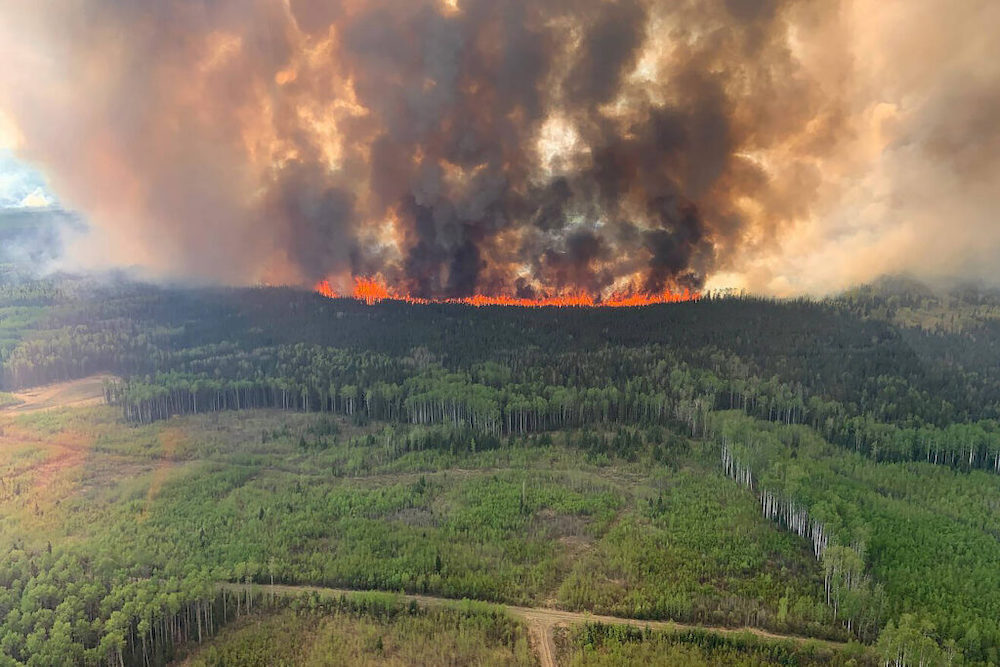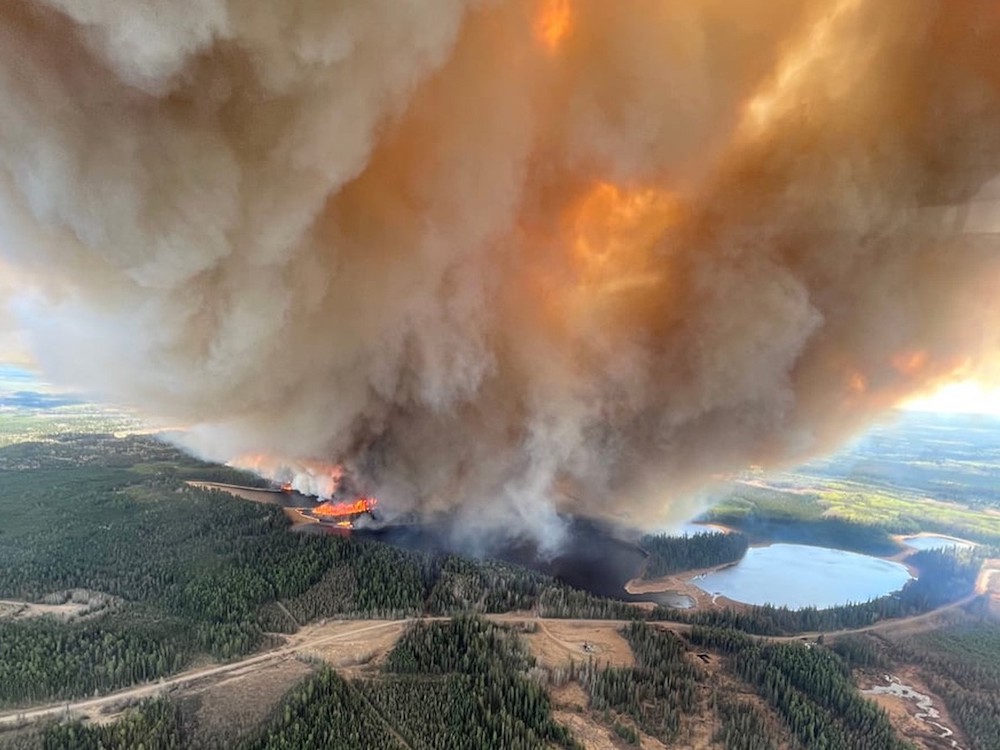It has been one of the worst starts to Alberta’s wildfire season in decades with thousands of people displaced, sometimes with only hours notice, and homes, businesses and hundreds of thousands of hectares burned.
There is no question of a direct connection between human-induced global warming and the wildfires, an expert said.
But despite the mounting human and financial cost, two weeks into Alberta’s provincial election, the United Conservative Party and the New Democrats have essentially ignored the issue of human-induced global warming and Alberta’s duty to address it.
“Climate change is not something that works particularly well as a priority election issue,” said Lori Williams, an associate professor of policy studies at Calgary’s Mount Royal University.
“The top two issues in Alberta are affordability and health care. And leadership after that.”
Both of Alberta’s main political parties claim they balance economic and environmental policies.
“It is just always a delicate balance to talk about energy and the environment,” she said.
“As much as the wildfires are a huge problem for some people in Alberta,” Williams said, “the solution to that problem is not in long-term climate policy, it is disaster management, emergency response and leadership.”
Keith Stewart of Greenpeace Canada wonders how balanced this “delicate balance” is when residents across the province couldn’t safely breathe the air earlier this week due to wildfire smoke.
So far this wildfire season, there have been 475 fires with over 615,000 hectares burned. About 16,000 people have been forced to flee, including the residents of entire towns in northern Alberta. Dozens of homes and businesses have been razed, many in Indigenous or Métis settlements. Provincial disaster authorities say, as of Tuesday, there were 89 active fires, 28 of those were out of control.
“You can't separate the environment and the economy, in a world facing a climate crisis,” Stewart said, noting the 2016 Fort McMurray fire cost an estimated $10 billion. The Insurance Bureau of Canada said it was the most expensive insured natural disaster in Canadian history.
“You can look at all the homes being burned down in northern Alberta right now and say, ‘Wow, that is great for [the gross domestic product] once we rebuild them.’
“But I don't think anyone thinks that is truly good for people's lives or livelihoods even if it might boost GDP numbers. It is a tragedy for everyone affected.”
Stewart said this is a now problem, not a later problem.
“It is pretty clear that climate change does affect Albertans, and it is not just some problem for the distant future,” he said. “It is literally a problem right now if you can't breathe in the morning.”

Mike Flannigan, a professor of Wildland Fires at Thompson Rivers University in Kamloops, has absolutely no doubt there is a strong connection between the wildfires and human-caused climate change not just in Alberta, but also Canada and the United States.
“I'm not a politician, but to me, it is a bit like an ostrich putting their head in the sand,” Flannigan said about the absence of climate change and wildfires in the provincial election discourse.
“They are just hoping it will go away, or won't become an issue. But it is an issue; it is a global issue,” he said.
Wildfires are only one of the issues caused by global warming, Flannigan said, but there are others.
“There are many, many facets of human society that are being impacted, and are only going to increase with time, as we see more extreme crazy weather around the world,” he said.
“The warmer weather causes more fire and [increases] the atmosphere's ability to suck moisture out of the fuel, the vegetation. The stuff that burns increases almost exponentially as temperature increases.”
Unless there is an increase in precipitation to compensate for the drying effect from the warmer weather, the vegetation — the fuel for fires — becomes even drier and there is more of it.
“Drier fuels means it is easier for fires to start, easier for them to spread,” he said. “And it means more materials available to burn. Which leads to higher intensity fires, which are difficult to impossible to extinguish. A warmer world means more fires.”
“So, yes, to me,” Flannigan said, “it should be a topic near the top of the list up there with health care and things like the economy.”
The UCP did not acknowledge an interview request. The NDP provided a statement that didn’t address the issue of what, if anything, it intends to do if elected to address the root causes of climate change.
“We need a government that is taking a realistic, practical and effective approach, and not pretend [climate change] doesn't exist,” the NDP statement said. “With the threats we're facing right now we need to focus on proactive planning, to invest in adaptation and community protection, understanding we're going to see more of these incidents."
Greenpeace’s Keith Stewart said “it is a sign of a lack of political leadership on all sides when climate change is the problem that dare not speak its name in Alberta politics.”
If you have any information for this story, or information for another story, please contact us in confidence via email. ![]()
Read more: Politics, Alberta, Environment















Tyee Commenting Guidelines
Comments that violate guidelines risk being deleted, and violations may result in a temporary or permanent user ban. Maintain the spirit of good conversation to stay in the discussion and be patient with moderators. Comments are reviewed regularly but not in real time.
Do:
Do not: